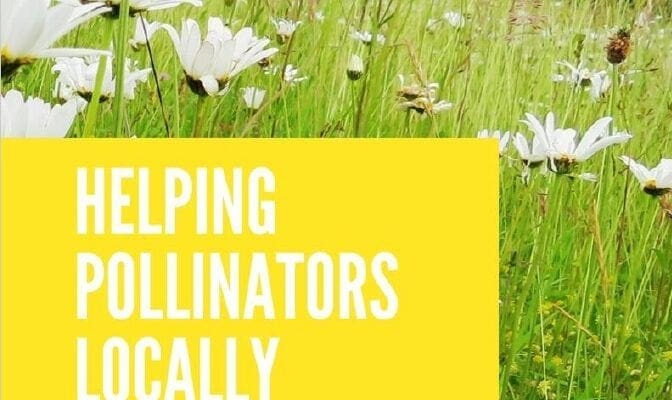Friends of the Earth and Buglife are urging councils to do more to help Britain’s bees
Friends of the Earth and Buglife are urging councils to do more to help Britain’s bees, after a survey found that only two English county councils have comprehensive pollinator action plans in place.
Policies such as cutting roadside verges less frequently aren’t just good for bees – they can also save councils thousands of pounds. The two charities have produced a comprehensive guide for councils, setting out policies that would help pollinators locally. Habitat loss is a major contributor to pollinator decline, and the guide includes easy, cost-effective measures to protect and restore pollinator-friendly habitats.
Friends of the Earth and Buglife contacted all 27 English county councils. Of the 19 that replied, only two – Devon and Dorset – have pollinator action plans in place, although another four – Hampshire, Kent, Worcestershire and Somerset – are in the process of drawing up action plans.
A YouGov poll for Friends of the Earth and Buglife, published last year, found that almost 63% of the population thought councils should be doing more to protect Britain’s bees, and 81% backed calls for councils to cut grass in parks and on verges less frequently, to allow wildflowers to grow.
Dr Annabel King, senior ecologist at Dorset County Council, said, “We are very proud to be one of the first local authorities to produce and implement a pollinator action plan. The plan is specifically aimed at helping all pollinators, including bees, butterflies and moths, numbers of which have declined severely in the last 50 years.
“The plan has enabled us to make significant savings – we save around £93,000 a year by only cutting rural road verges when needed, allowing wildflowers and grasses to flower and set seed.
“We also never use topsoil when creating new road verges any more, as subsoil results in wildflower-rich grass, which is of greater use to pollinators and costs less to manage.”
Find out more and download the guide at https://friendsoftheearth.uk/bees/councils-urged-adopt-beefriendly-grasscutting-and-introduce-pollinator-action-plans











